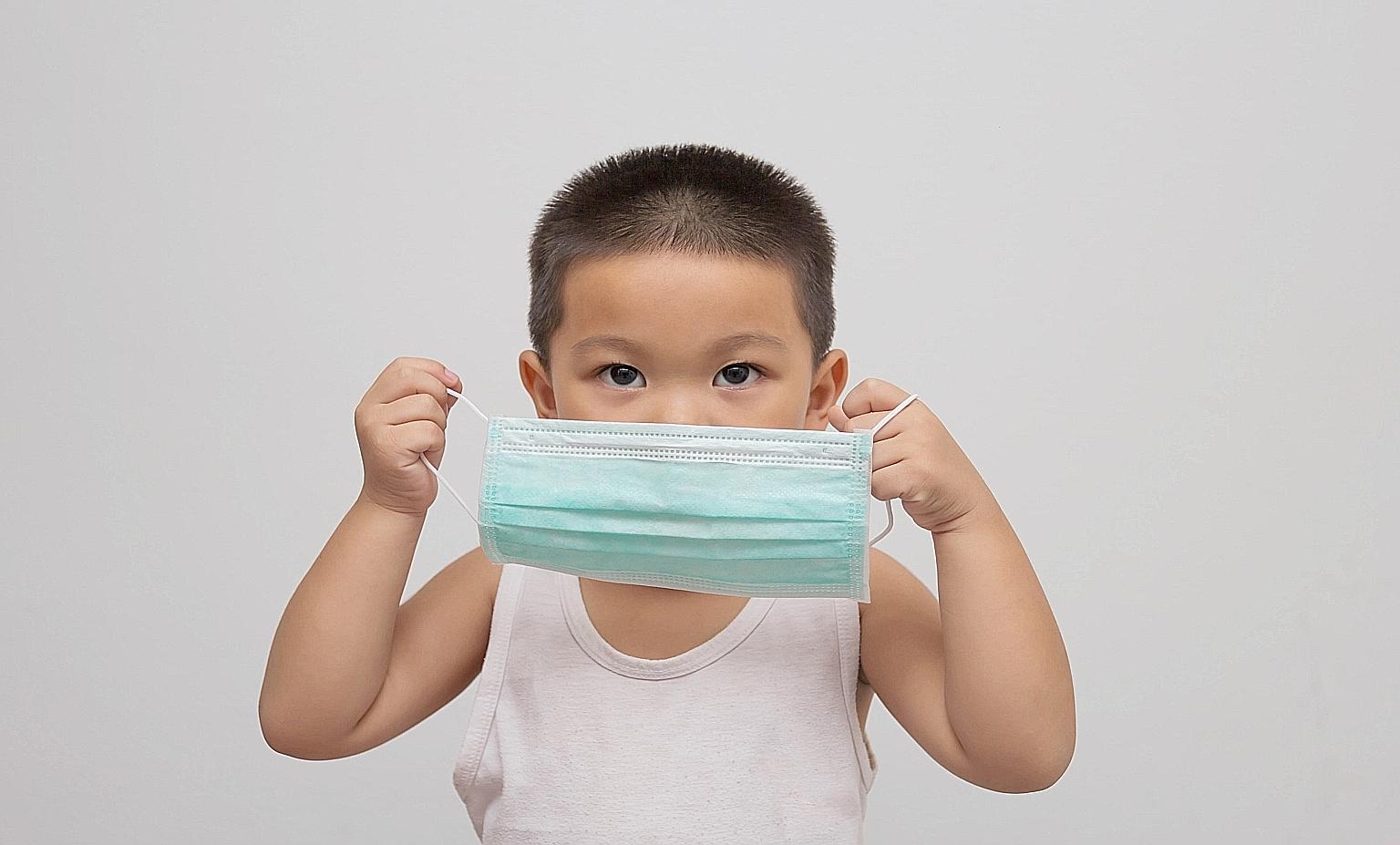Smart Parenting
Covid-19 childhood
• Fewer play dates • Less physical interaction • Fiercer parents • New learning difficulties; Babies and toddlers face challenges in the pandemic too, but there are bright spots, studies show
Sign up now: Get tips on how to help your child succeed

A challenge for young children during the pandemic is learning to read people's facial expressions with faces half-covered by masks.
PHOTO: ISTOCKPHOTO
Covid-19 has been a distressing time for most parents, but the pandemic is also leaving a mark on the young ones.
To babies and toddlers, the world of mask-wearing and hand-sanitising is the only one they know.
In the past year, they have been hearing and learning words like "coronavirus" and "safe distancing". They are being kept away from playgrounds and have fewer play dates, less physical interaction with people and smaller birthday parties, if any.
Here are ways in which the little ones are being affected.
STRESSED PARENTS
According to a project in Britain tracking children under the age of two growing up amid the Covid-19 pandemic, 98 per cent of organisations working with families believe babies and toddlers have been affected by higher parental stress and anxiety.
Parents face pressures like juggling childcare, overseeing schoolwork and managing their own work, financial loss and social isolation, said the January report by a group called First 1,001 Days Movement.
This affected parent-child bonding, with nine in 10 service providers observing that babies were less active, with their primary caregivers spending less time playing with them.
Last year, a local survey of about 1,000 mothers by charity Focus on the Family Singapore found that the pandemic and circuit breaker from April to June added to the physical and mental load mothers already carry at home.
Sixty per cent of mothers reported stress levels of seven - or higher - out of 10. This is up from 52 per cent in a similar survey in 2019.
Separately, another study of about 260 parents of children aged 12 and below here from April to May last year showed how Covid-19 had affected parenting adversely.
Parents who felt more stressed by the effects of the pandemic - whether tighter finances or poorer mental well-being - indicated that they were fiercer with their kids, said the study.
This meant they resorted to more caning, spanking, yelling and using harsher words.
The poll was conducted when Singapore's circuit breaker and full home-based learning were in place.
Parents surveyed also felt they were not as close to their children during that period.
"Parenting under typical conditions is already difficult, as many parents struggle to balance work and parenting duties," the study, which was published online last September in the Journal of Family Violence, reported.
"During lockdowns, when families remain at home for prolonged periods of time, parents must perform multiple roles with fewer resources and less support than they previously received from schools, churches, neighbourhoods and other family members."
This causes significant stress and, for some parents, the loss of a job or reduced wages worsens the stress, noted the study by social work researchers from the University of North Carolina at Chapel Hill and National University of Singapore.
MASKING CHALLENGES
Another challenge for young children is learning to read people's facial expressions with faces half-covered by masks.
The reduction in social interaction in the past year may also have contributed to increased stranger anxiety among toddlers, said paediatricians.
Speech development takes place rapidly during the early years, especially in those aged two to three. Studies have shown that visual cues are important in helping children to identify emotions and express themselves during social interactions.
They now have to rely on other cues, such as tone of voice and body language.
With mask-wearing set to be in place for a while, pre-schools have found ways to work around it.
For instance, they may get teachers to wear face shields instead of masks, or use masks that have a transparent portion over the mouth when they are reading a book or teaching phonics.
Teachers are also paying more attention to children's non-verbal cues, like body language and gestures.
MORE QUALITY TIME
On the bright side, families have reported having more time to recharge and reconnect with one another during the pandemic, when many activities came to a halt.
Some started shared hobbies or routines like gardening or board games, and were able to spend more quality time together.
In a Focus on the Family Singapore survey of 1,052 children aged 10 to 15 last year, more than seven in 10 kids said they were close to their parents.
Work-from-home arrangements have also allowed fathers to step up at home, and the charity's poll of 1,000 mothers found that those who indicated their spouse as their main source of support reported significantly lower stress.
Its findings from a separate poll of about 2,400 fathers also noted that eight in 10 connected better with their children last year.
-
Helplines
National Care Hotline: 1800-202-6868
MENTAL WELL-BEING
• Fei Yue's Online Counselling Service: eC2.sg
• Institute of Mental Health's Mental Health Helpline: 6389-2222
• Samaritans of Singapore: 1800-221-4444
• Silver Ribbon Singapore: 6385-3714
• Tinkle Friend: 1800-274-4788
MARITAL AND PARENTING ISSUES
Community Psychology Hub's online counselling platform: CPHOnlineCounselling.sg
COUNSELLING
• TOUCHline: 1800-377-2252
• Care Corner Counselling Centre: 1800-353-5800


